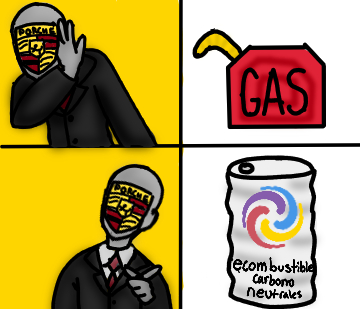Porsche is Making eFuel from Water in Chile

Picture by Ash
Porsche, the renowned German sports car manufacturer, has successfully produced synthetic gasoline using water, carbon dioxide, and renewable electricity in a trial facility in Chile. This eFuel’s manufacturing marks a significant advancement in the search for clean energy substitutes for the transportation sector.
Porsche claims that eFuel is a sustainable and carbon-neutral fuel that doesn’t require any engine changes to be utilized in conventional internal combustion engines. This implies that vintage automobiles like Porsches and other classic cars can continue to run on a more sustainable fuel than traditional gasoline and cleaner.
Water is split into hydrogen and oxygen during the eFuel generation process utilizing sustainable electricity produced by wind and solar energy. The subsequent chemical process creates methanol after mixing hydrogen and air-captured carbon dioxide. The finished product, gasoline, is made after the methanol has been processed.
A Porsche 911 GT3 Cup race car has tested 130,000 gallons of eFuel produced at the Chilean pilot facility since it began operating in 2019. The studies have demonstrated that, although producing much fewer pollutants, eFuel performs equally well as conventional gasoline in terms of power output and driving enjoyment.
By 2024, Porsche hopes to increase eFuel output to up to 55 million liters annually by building a larger eFuel production facility in Chile. To develop the technology and infrastructure required for generating eFuel on an industrial scale, the company has also teamed up with Siemens Energy.
Porsche and the more significant automotive industry have a great chance to move toward more environmentally friendly transportation with the manufacture of eFuel. Even while electric vehicles are becoming increasingly popular, they still have a severe range and infrastructural problems. Conversely, eFuel doesn’t require significant upgrades or investments in current vehicles and refueling infrastructure.
Also, eFuel may significantly impact lowering carbon emissions in sectors that heavily rely on fossil fuels, like shipping and aviation. When it comes to reducing their environmental effect, these industries find that employing renewable energy sources to manufacture eFuel makes it a very appealing option.
Overall, the creation of eFuel by Porsche is a noteworthy advancement in the search for sustainable and clean alternatives to conventional fossil fuels. The performance in Chile and the plans for further expansion show that eFuel has excellent potential to contribute significantly to the shift toward a more sustainable transportation sector.

Hi, my name is Jaydan Lee. I am a Junior, and this is my first year in Journalism. I am taking nine classes this year, including a zero period, six regular...





